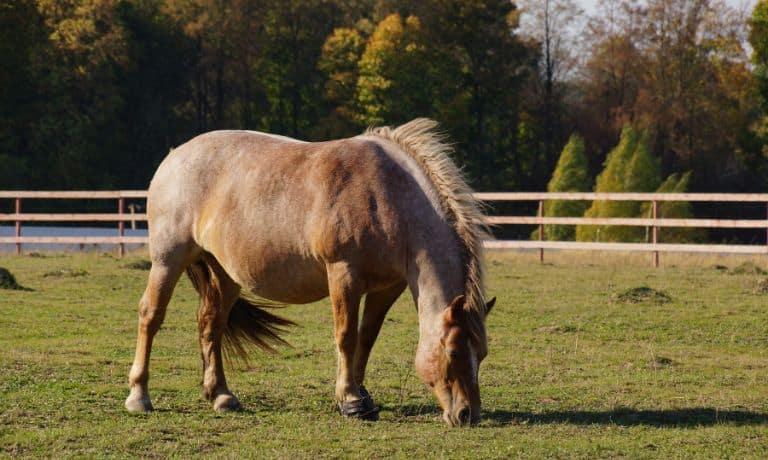
We love our pets and want to keep them healthy and satisfied so they can live full, happy lives. Obese pets, especially traditional worker pets such as horses, can’t fully enjoy their life with all that extra weight and related health problems. There are various causes of obesity in horses that you should know so you can keep your horse healthy. If your horse is already struggling with obesity, there are some treatments available as well.
Causes of Horse Obesity
Many of the causes of obesity in horses overlap with obesity in humans. Overfeeding and lack of exercise are two of the biggest obesity causes we have in common with our beloved pets. However, these causes are more nuanced in our horses than in most humans. Overfeeding can happen more easily in horses if you’ve planted a high-calorie forage pasture. Lack of exercise can occur when you don’t provide a large enough pasture or enough labor, such as show jumping.
Additional causes of horse obesity are insulin resistance, intestinal parasites, and painful body inflammation. You will need to consult with a veterinarian if you suspect these are the causes of your horse’s obesity, as they require more specific care.
Treatments for Horse Obesity
Consult with a veterinarian for specific care options regarding obesity due to illness and problems with overfeeding and lack of exercise. They can examine your horse and create a detailed plan for helping them live healthier lives, no matter the cause of their weight gain.
However, some general tips can help with treatment. Weigh or calculate the weight of your horse. The general rule of thumb is 1.5 to two pounds of feed per 100 pounds of the horse’s body weight. Because they’re overweight, you’ll need to ask a vet how much to subtract from the number you calculate or whether you need to change what your horse is eating.
Also, ensure your horse gets plenty of time out in the pasture. If they’re not running around their pasture, try hand-walking them around the pasture or another area. Pair them with another horse during hand walking to encourage healthy strides.
Risks From Horse Obesity
You may think that a few extra pounds on your horse are okay and that you don’t need to bother with the expenses of a vet or waste time with these treatment options. After all, there are plenty of overweight lap dogs and barn cats in the world. Few owners are overly concerned about them.
However, there are many common health risks for overweight horses, as well as other overweight animals. Letting your horse keep that weight on and potentially gain more can hurt its vital organs, such as its heart and lungs, negatively affect fertility, and contribute to lameness. Prioritize your horse’s diagnosis and treatment, so you never have to worry about these risks.
These common causes and treatments for obesity in horses help you understand why your horse is gaining weight and how you can help them. Knowing the risk can help motivate you to get them the help they need since your horse can’t advocate for their health themselves. Remember to always consult with a licensed veterinary professional as you seek to diagnose and treat your beloved pet for obesity and other health conditions.





